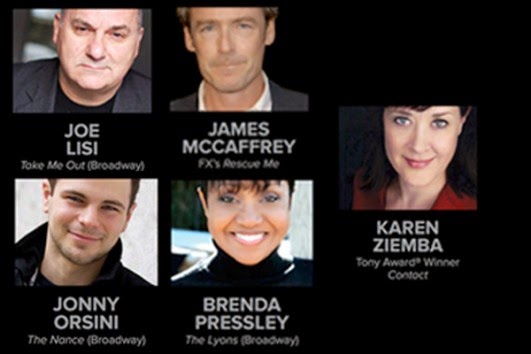Some recent conversations with veterans seeking jobs in the private sector have reminded me of the timeliness and continued relevance of this article that I posted several years ago on The White Rhino Report.
In my Executive Search practice, White Rhino Partners, I am often asked by my client companies to find leaders and managers with very specific skill sets. It turns out that in many cases, some of the best candidates I am able to present to my client companies have honed their leadership skills which serving in the military - either as junior officers or more senior field grade and flag officers. As a result of this niche area of specialization, I spend a great deal of time with very talented and gifted candidates who are in the process of transitioning from a career of military service to a new career in the business world. Some make this transition directly; others do it by way of business school or some other graduate level program.
For many of these men and women, the transition is fraught with frustration and disappointment. A short while ago, I spent time catching up with a combat veteran who has recently completed an MBA from a top-ranked business school. He is still looking for the right fit as his first post-military job. In our recent meeting, he was very transparent and honest in sharing his frustrations, and he has consented to allow me to share with readers of The White Rhino Report some of his recent experiences in his job search.
+ + + + + + + + + + +
Several weeks ago I had an interesting conversation with a relatively senior human resources professional at a major defense contractor. As a veteran engaged in a post-military (and post-graduate school) job search I went into the conversation with some confidence—I understood the product and the customers that this firm was trying to reach. My record is a good one, and I recently graduated from one of the better business schools in the world. I had reached out to senior executives at the firm who shared some elements of my background and they put me in touch with this recruiter. While right now the hiring environment in the defense industry isn’t the best, I had hopes that perhaps there’d be a fit somewhere in the organization.
All of the confidence went right out the window, however, when practically the first words out of the HR executive’s mouth were along the lines of “we can’t hire you, you don’t have any experience.” As I have approximately eight years of military service, this was surprising to me, so I pushed back some, mentioning what the military-to-civilian transition folks tell you to highlight: leadership, responsibility, technical expertise, and the like. This recruiter then let me know that my specific military background wasn’t a fit for their organization, and that besides, I had no “corporate” experience. I admitted that this is indeed true, but I had an internship between my two years of business school, and in-depth coursework that I felt complemented the “soft skills” of my military background. This HR professional was unswayed.
This was a disappointing turn of events, and I asked if the recruiter would like to end our call, as I wanted to respect his time and the vibe I was picking up didn’t seem entirely positive. When he didn’t immediately get off the line I didn’t want to waste an opportunity to garner some feedback on my job search process—so asked, in his opinion, was I barking up entirely the wrong tree trying to approach companies like his with a background like mine. He said, "Yes, we look for corporate experience," and he had doubts that with my background I’d be able to hit the ground running in his business and immediately start adding value. Times are tough and they don’t have time to train up novices. He was very generous with his time and gave some additional specific feedback and offered up some of his connections to help further my job search.
This exchange took me a back—I know times are tough, but I had been confident that at this firm, in this industry, a veteran would have a chance to break in. Their CEO was a retired (very high ranking) military officer who had come straight out of uniform to the company—my thinking was that if they’re willing to do that for such a position as the CEO, then a lower level business person could follow suit. This whole experience leads me to question how vets can better position themselves and how companies can better capitalize on talent coming out of the military services.
A good analogy would be an athlete switching sports. Imagine you’re a very good sprinter, excellent in the 100 meter and 200 meter dash, and that you enjoy the thrill of going fast. For whatever reason you’re leaving the spring squad. So you go out to evaluate your options in other sports. Some options go right out the window—table tennis and Greco-Roman wrestling just wouldn’t be a fit. Other options are possibilities, but would take a long time to transition—football or rugby would certainly capitalize on your speed, but the coach would have to take a risk and be willing to work with you to develop your skills. If it worked out, though, you could be a star and bring a lot to the team.
Some coaches would look at your background and see a runner—and immediately suggest becoming a marathoner. They missed that you were a sprinter, and that it may actually be a more difficult and costly transition to go from the 100 meter dash to marathon than it would be to switch from 100 meter dash to the football field.
Finally, there are options out there that require some measure of creative thinking. You as an excellent sprinter may also be an excellent bobsledder. But bobsled is just esoteric enough that you have never had the chance to give it a try, and additionally the coach has to recognize (1) that your talent would add a lot to his team and (2) the transition to bobsled may be a lot less costly than it would at first appear. In my conversation with the recruiter I was trying to make the case that I would be an asset to his bobsled team—he thought I should go out and start running marathons.
How then to bridge this gap? I think that first it falls to the candidate to make clear what knowledge, skills, abilities, and attitude they’d bring to the company. Here all the standard resume and application advice applies—demilitarize the language, draw the connections as clearly as possible, talk to veterans within the organization to see if they have advice on how to make your case. But that can really only get a candidate half way.
I think there does have to be some effort on the part of the hiring company to see talent for what it is—and this is really, really hard. The economy and business environment are such that it’s difficult to justify taking risks in hiring. My point here, though, is that lack of creative thinking when evaluating a potential military hires may present a greater risk than would first appear—the hiring firms are missing out on a significant pool of talent that is there for the taking.
+ + + + + + + + + + +
My candidate makes some very valid points about the dual responsibility of bridging the gulf that often exists between veterans and hiring authorities. Bridges need to be built with effort on the part of both the candidate and the hiring company. To use a different analogy, veterans are often manacled by an inability to convey their potential value to an employer on the one hand, and the employer's inability on the other hand to extrapolate from the candidate's military experience and envision him/her solving analogous problems within their enterprise.
Companies need to do a better job of training their people to see the gold that veteran candidates bring to many open positions. They should do this - not out of pity or out of a sense of obligation, but because it is a sound business decision to recruit and hire the best and the brightest. And in many cases, because of their leadership experience under fire, men and women who have served in our military bring a maturity, sense of responsibility, work ethic, solid core values, people skills, communication acumen and cross-cultural sensitivity that are rare commodities in the business world today. When I asked a client of mine why he has come to value and to hire veterans, he smiled and said plainly: "Because they know how to get shit done!"
So, on the corporate side, what can we do?
- We can educate ourselves and enter into conversation in response to the kind of honest sharing that my friend offered above.
- We can learn from and support the many veteran-led organizations that have figured out how to bridge some of these gaps.
- We can utilize current employees who have served in the military to better educate hiring managers and recruiters about how to properly evaluate candidates who are veterans.
In the coming days and weeks, I will be highlighting in this space many examples of organizations and companies that are leading the way in these efforts. We need not reinvent the wheel- we just need to get better mileage out of it and a smoother ride.
Oh, yes. If you would like to learn more details about the brave veteran who shared his story in this piece, with a view to possibly adding him to your company's leadership team, contact me and I will be glad to pass along his details. You just make be able to make your bobsled team that much faster!
Al





